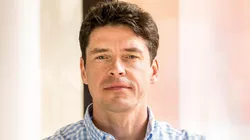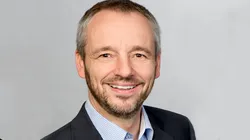TUM-IAS Fellow Prof. Hendrik Dietz and TUM-IAS Host Prof. Dr. Wolfgang A. Wall received prestigious ERC Advanced Grants
News |
TUM-IAS Carl von Linde Senior Fellow Prof. Hendrik Dietz and TUM-IAS Host Prof. Dr. Wolfgang A. Wall, Principal Investigators affiliated with MSRM, received prestigious ERC Advanced Grants to develop artificial viruses from DNA origami and create a computer model of the human lungs using AI.
Learn more here https://www.tum.de/nc/die-tum/aktuelles/pressemitteilungen/details/36580/
Prof. Dr. Hendrik Dietz (Physics)

Prof. Hendrik Dietz aims to develop artificial viruses with DNA origami. He is a TUM-IAS Carl von Linde Senior Fellow and heads the Chair of Biomolecular Nanotechnology. His research has already been founded with an ERC Starting Grant and an ERC Consolidator Grant. In 2016 he received the Leibniz Prize, the highest scientific distinction of the German Research Foundation.
In the nucleus of human cells, double strands of deoxyribonucleic acid (DNA) store the genetic information. Usually they form a double helix structure. By cleverly choosing the sequence of the individual DNA bases, however, completely different shapes can be rationally designed. In analogy to the Japanese art of folding paper, this technique is called DNA origami. In his project named GENESHUTTLE, Prof. Hendrik Dietz aims at building virus-like objects from synthetic DNA. These assemblies should be equipped in such a way that, like real viruses, they can recognize target cells and deliver genetic material into the nucleus of these cells. Such synthetic gene delivery systems could on the one hand be used as a model systems for the investigation of viral infection processes. On the other hand, they would be potentially superior to synthetic vectors and would offer new technical possibilities for future gene therapies.
Prof. Dr. Wolfgang A. Wall (Mechanical Engineering)

Wolfgang A. Wall is Professor for Computational Mechanics. He uses machine learning to create a computer model of the human lung.
Although breathing is an essential process for humans and lung diseases are one of the leading causes of death, there are still a number of unsolved mysteries regarding vital processes in the lungs. The main reason for this is the lack of measurement methods or imaging techniques in crucial regions of the lung. Computer models of the lung are opening up new perspectives. While some of these models are already promising on their way to clinical use, even the best models still suffer from severe limitations. With the BREATHE project, Prof. Wolfgang A. Wall aims to develop unprecedented comprehensive computational models of the respiratory system. With crucial new developments in the field of high-performance computing, coupled tissue and fluid mechanics and the combination of machine learning and physical modeling, important open questions in biomedical research will be answered and, based on available heterogeneous patient data, decisive steps towards personalized medicine will be taken.